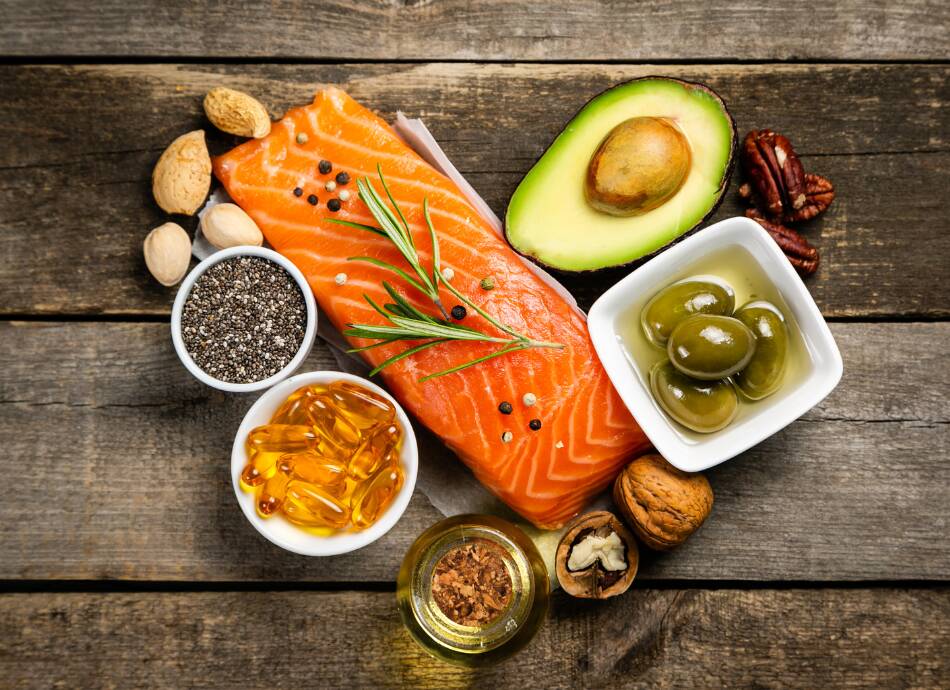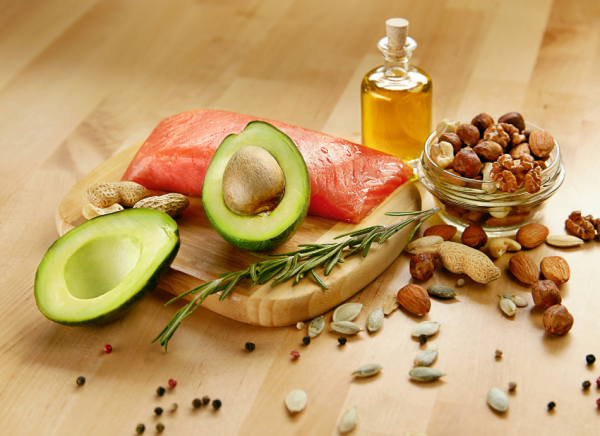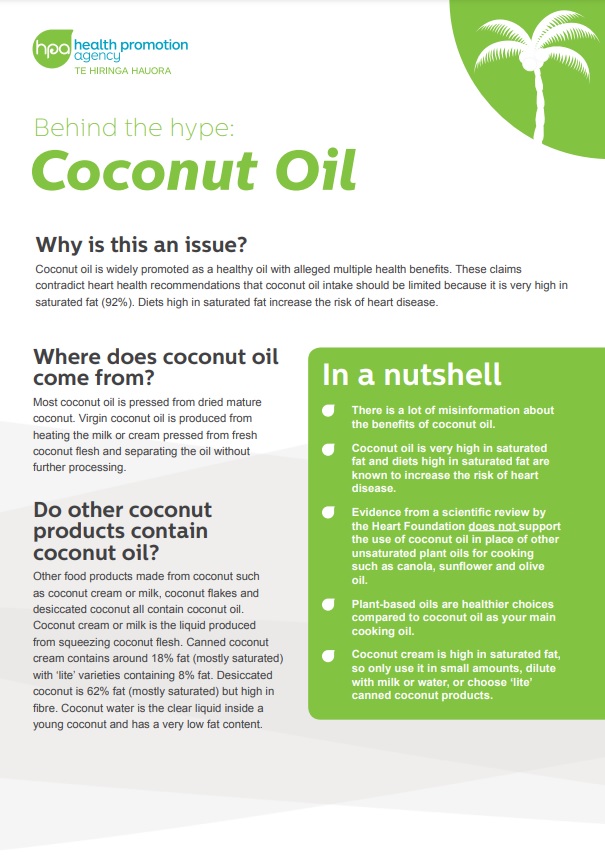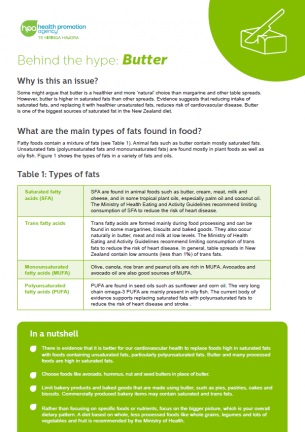Different foods contain different combinations of fats. For good health we need to reduce our intake of foods high in saturated and trans fats and replace this with foods high in mono and polyunsaturated fats.
Saturated fats
Saturated fat is found in animal-based foods such as butter and cream, and the white fat on meat such as pork, lamb, chicken and beef. It’s also found in coconut and palm oils and a wide range of processed foods and takeaway foods including pies, burgers and chips. When you regularly eat too much saturated fat you produce more ‘bad’ low density lipoprotein (LDL) cholesterol, which can form plaque in your arteries and increase your risk of cardiovascular disease and stroke.
Many processed and fast foods are not only high in saturated fat, but they also contain high amounts of kilojoules (calories), which can lead to weight gain and further increase your heart disease risk.
Controlling your LDL cholesterol level is the best known way of lessening your risk of coronary heart disease, so eating fewer of the foods that contain large amounts of saturated fat is an important way to do this.
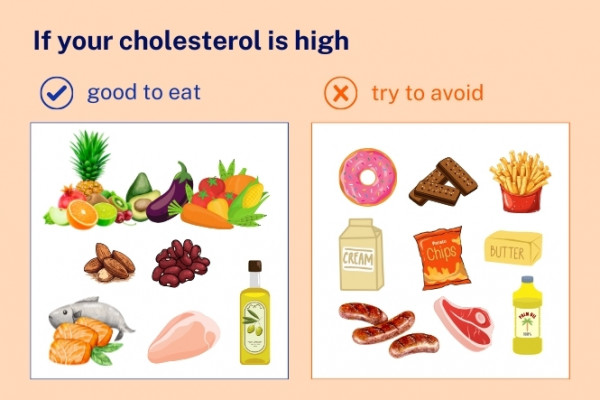
Image credit: Healthify He Puna Waiora
Trans fats
Trans fats are an unhealthy type of fat. These fats increase levels of ‘bad’ low density lipoprotein (LDL) cholesterol and lower ‘good’ high density lipoprotein (HDL) cholesterol which means they're not good for heart health.
Most of the trans fats eaten in Aotearoa New Zealand are from processed foods such as biscuits and deep-fried foods. Trans fats are also found naturally in some foods such as dairy and some meat products.
Trans fats are listed on food labels as ‘hydrogenated oils’ or ‘partially hydrogenated oils’. Over time there has been a reduction in their use by the food industry however you may still see them in some processed or packaged food products.
Unsaturated fats
Unsaturated fats include monounsaturated and polyunsaturated fats. Omega-3 and omega-6 fats are types of polyunsaturated fat.
Unsaturated fats come mainly from plants. They're in foods such as seeds, nuts, avocados, canola and olive oil, and plant-based margarines. Some unsaturated fats come from animals, including oily fish such as salmon, tuna, mackerel and sardines.
Eating these foods helps to reduce LDL cholesterol and increase HDL cholesterol in your blood which is good for your heart health.
Reducing saturated fat intake and replacing it with unsaturated fats, in particular polyunsaturated fats, is linked with a decreased risk of heart disease.


